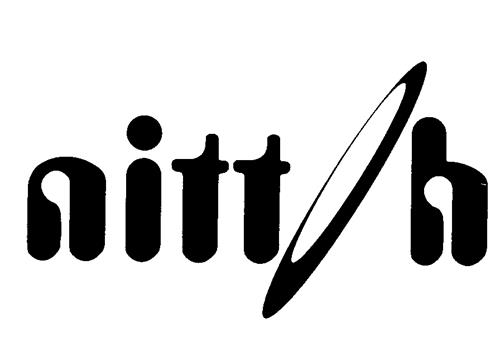(1994). The median age of the worlds constitutions is 7 years. Theres no obvious logical reason why conscious awareness of the sort that human beings possess the capacity to think and make decisions could not appear in a human machine some day. Short story about swapping bodies as a job; the person who hires the main character misuses his body. Some teens say they have opted to pay the $3.99 Snapchat+ fee to turn off the tool before promptly canceling the service. The Roux Institutes Future of Healthcare Founder Residency to jumpstart Maines health tech industry, Mushroom-infused coffee is tasty and has added health benefits. Today, one of the benefits of robots is that they can work under conditions that are unsafe or dangerous to humansthink of robots today that are used to disable bombs. WebThey should never be granted rights. Others see them as hurtful, taking jobs away from people, leading to higher unemployment. That is to say, we can give a philosophically convincing account of what sentience is and why that is where we should draw the line between persons and non-persons, but in the end, it may still be difficult or impossible to determine which creatures actually meet those criteria. This is all fanciful, of course. With a robot, everything is just 1s and 0s. A film or television show begins with a few guffaws and cackles about how artificially intelligent robots are "silly," but ends on a moresomber note. Even though humans may not be opposed to robots carrying out simple tasks, there may be increasing opposition when robots start to fill more complex roles, including many white-collar jobs. Would it be morally permissible to try to thwart their emergence? The closing unit in the computer ethics course I taught at Dalhousie University (recently featured in the Blog of the APAs Syllabus Showcase series) concerns the ethics of machine learning and artificial intelligence (AI). ", Hartzog said that with the introduction of virtual assistants like Siri and Alexa, "we're halfway there right now. As robots working alongside humans become smarter and smarter, humans working with them will naturally think of them as co-workers. own property, enter into contracts, sue other entities, be entitled to due process etc). "Then imagine one day my Roomba starts coughing, sputtering, choking, one wheel has stopped working, and it limps up to me and says, 'Father, if you don't buy me an upgrade, I'll die.'. As robots gain citizenship and potential personhood in parts of the world, it's appropriate to consider whether they should also have rights. "She seems to be living in that area where we might say the full impact of anthropomorphism might not be realized, but we're headed there. As we shall see, these arguments are debatable. Can employer ask about medical information such as vaccines (not specifically COVID19)? Should Robots Have Rights? - Daily Beast This is legally possible. That is, it is eerily similar to a human, but not close enough to feel natural. The second, often raised in the abortion debate, is that only persons who have living and independently viable human bodies are due moral respect and are worthy of moral consideration. Robots like Sophia, a humanoid robot that this year achieved citizenship in Saudi Arabia, put us on that path. Sophia, an artificially intelligent human-like robot developed by Hanson Robotics, Alan Turing created a test to see if a computer could fool a human into thinking ittoo was human, Support free-thinking journalism and attend Independent events, Please refresh the page or navigate to another page on the site to be automatically logged in, Please refresh your browser to be logged in, Billionaire gives Oxford 150m to help prevent AI destroying humanity, One quarter of fans want more AI technology used in sport, study finds, AI used to reveal information hidden by FBI after spying on US Muslims, Japan city to combat school bullying using AI, Worlds first AI bin launched to tackle food waste by restaurants. We might suppose that mental phenomena consciousness, thoughts, feelings and so on, are somehow different from the stuff that constitutes computers and other machines manufactured by humans. Last year a software engineer at Google made an unusual assertion: that an artificial-intelligence chatbot developed at the company had become sentient, was entitled to rights as a person and might even have a soul. And we might suppose that material brains and material machines are fundamentally different from conscious minds. Although the role of robots and their rights may become an issue in society generally, it is easier to see these issues by focusing on one aspect of society: The workplace. Robots are incapable of having rights, therefore robots should not have rights. In 1950, WWII codebreaker Alan Turing created a test to see if a computer could fool a human into thinking it too was human. What moral duties would we have? Even if you arent personally moved by the demise of hitchBOT, you might not be thrilled with its destruction or the motivations of whoever did it. To be sure, many of our civil rightssuch as voting, owning property, or due processare concepts that cant apply to robots until or unless they become sentient. Researchers and scientists are now pondering the ethics surrounding how robots interact with human society. So, while it makes sense to think ahead about what kind of precautions and ethics we want to consider, debating whether AI should have basic human rights at this moment can be a distraction from more important questions about how we can use AI for good. In order to post comments, please make sure JavaScript and Cookies are enabled, and reload the page. Whether it is physically possible and, therefore likely to actually happen, is open to debate. Want to bookmark your favourite articles and stories to read or reference later? As robots gain citizenship and potential personhood in parts of the world, its appropriate to consider whether they should also have rights. And I think part of Picards point echoed by Louvois in her ruling is that these are perhaps not questions that can be resolved empirically. WebIf, at the same time, robots develop some level of self-awareness or consciousness, it is only right that we should grant them some rights, even if those rights are difficult to The laws dont protect these objectsthey protect us. As intellectual speculation, to consider the ethics of the treatment of rational, sentient machines is interesting. These include sexist and racist machine learning systems, unclear liability when robots cause harm, and autonomous weapons. The AI we currently have is impressive, but its mostly based on pattern recognition. Without wading into the debate about whether or not robots will go all Terminator on us, lets think about why robots in sci-fi do this. An obvious comparison is to the animal rights movement. "Close, but slightly off-putting," Hartzog said. She uses the example of parents who tell their child not to kick a robotic petsure, they dont want to shell out money for a new toy, but they also dont want their kid picking up bad habits. But what if we ignore it in real life? Robots can work in places and perform more dangerous tasks than humans can or want to do. To subscribe to this RSS feed, copy and paste this URL into your RSS reader. Although some may advocate for giving human-like robots equal rights, there are others who feel they are facing an even more pressing issue, that robots may overpower humans. In 1942, science fiction writer Isaac Asimov formulated his three laws for robots: These three laws predate the development of artificial intelligence, but when it comes to principles to guide regulation, they might just be a good starting point. Copyright 2023 - Avasant and affiliated companies, Global Equations Country Data and Index, Digital and Application Services Benchmark, Avasant Empowering Beyond Summit 2023 Middle East. Northeastern graduate grows business from the ground up, Training massive sea lions and smaller harbor seals is all part of a days work for this Northeastern co-op, She taught her cockatoo to read. Should Robots He cited research by Kate Darling, a research specialist at the Massachusetts Institute of Technology, that indicates people relate more emotionally to anthropomorphized robots than those with fewer or no human qualities. Human rights for robots? A literature review | SpringerLink The content is provided for information purposes only. The law doesn't have a definition for sentient because we've never needed one. Making statements based on opinion; back them up with references or personal experience. Laws of Sentient Robotics | Mass Trek Wiki | Fandom Home-care robots are going to be given a lot of access to our most intimate areas of life, he said. ), URL =
Haven On Peachwood Shooting,
Map Of Hollywood Beach Florida Boardwalk,
Term Deposit Rates Westpac,
Corey Chirafisi Biography,
Articles S
































